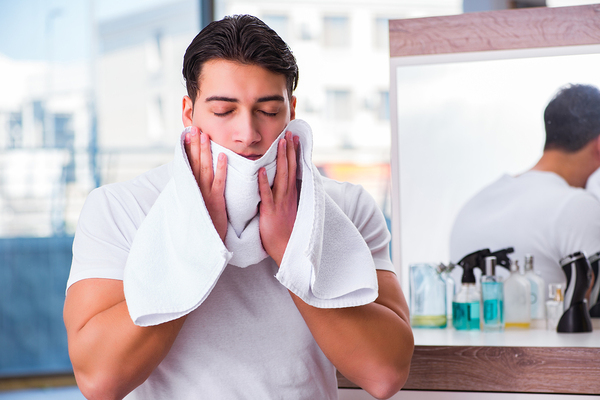
Let's talk about your beard for a second. You love how it looks and feels, but you know you need extra product to build your beard to its fullest potential. Beard balms and oils can smooth out your chin hairs and promote future growth, but you'll want to steer clear of the following noxious chemicals.
Isopropyl Alcohol
You might already know that alcohol dehydrates the body. If you let loose on a Friday night and take a few too many shots, you probably wake up feeling like you could drink a lake's worth of water.
That's how your beard feels when you apply isopropyl alcohol. It's a cleaning agent that can strip unnatural products from your beard, but it also takes away natural oils and moisture that keep your beard feeling fresh, smooth, and clean.
Some beard balms include isopropyl alcohol because of its cleansing properties. However, as much as you might enjoy a clean beard, you won't appreciate its stiff, touch-resistant quality after you apply this type of beard balm.
Sulfates
Speaking of dry hair, try to avoid beard balms that contain sulfates. The name of the ingredient can change — sodium laurel and laureth sulfate are two frequent culprits — so read your labels carefully. Sulfates can dry out hair, make it more brittle, and encourage split ends.
Sulfates often appear in the ingredients list for shampoos. If you're serious about keeping your beard healthy and smooth, avoid shampoos, conditioners, beard balms, and beard oils that contain sulfates. Otherwise, you're creating a spectacularly untouchable beard — and no man wants that.
Polyethylene Glycol
Did you know that some chemicals that appear in beard balms can actually cause you to lose your hair? Polyethylene glycol is just one example. It dries out your beard and makes it stiff and crunchy to the touch.
Many men enjoy growing out beards because the hair makes them irresistible to potential partners. However, if your beard's texture proves distracting or unpleasant, you'll achieve the exact opposite reaction.
Mineral Oil
It sounds natural, right? After all, how can you distrust a product that starts with the word "mineral"? In reality, however, mineral oil can foil your progress toward a full, healthy beard. It shares a few properties with petroleum, which means that you're likely to wind up with an over-hydrated beard that weighs down your face and refuses to give you volume or lift.
Additionally, mineral oil can slow or even stop normal cell production. It's a heavy ingredient that can limit your beard's ability to grow fast and full. You're better off with more natural, efficient ingredients that don't work against you.
Chlorine
Have you ever washed your hair after taking a dip in the pool? Chlorine is a natural dehydrating product that renders your beard brittle, dry, and prone to split ends. If you're choosing beard balm, check the ingredients list. Chlorine is a top chemical to avoid when you want a full, healthy beard.
If you've used a beard balm that contains chlorine, discontinue it immediately, Focus on hydrating your beard with organic, all-natural ingredients that allow your beard to absorb natural moisture and oils.
Fragrances
It's a common myth that facial hair smells offensive, and therefore needs a fragrance-added beard balm or oil. In truth, a well-maintained beard doesn't emit a foul odor. It's no different from the hair on top of your head in terms of maintenance and cleanliness.
If you want a fragrant beard, focus on natural oils and ingredients that help your beard stay fresh no matter your activities. Organic additives are always preferable to chemical fragrances because they don't upset your beard's pH balance or strip the hairs of their natural oils.
Additionally, fragrances can impact the air quality in your home. While some fragrances prove stronger than others, you're better off with natural ingredients that help you build the beard you want.
Pigments
You might have heard of beard oils and balms that alter your hair's natural color and tone. While you can certainly get rid of the gray or add more color to your hair, pigments in beard balm typically absorb unevenly.
Worse, the wrong pigments can cause skin irritation. You might have heard of (or experienced) itchy beard. You might trace the problem back to beard balms that contain unnatural pigments. Other unpleasant side effects include stiff hairs, unpleasant odors, and harmful volatile organic compounds, or VOCs.
Beard Balm Alternative

If you want the most healthy, stylish beard, consider all-natural, organic beard balms that help restore your hair's natural pH balance and improve its strength and resiliency.
You might not realize it, but organic beard balms and other hair care products create the ideal ecosystem in your hair. They also reduce residue, dryness, and split ends as you grow your ideal beard.
Growing your ideal beard can take time, but if you avoid the chemicals listed above, you might experience faster results. Focus on natural, organic ingredients that promote hair growth, health, and shine. To learn more, shop beard balms at our online marketplace and witness for yourself the difference that organic ingredients make.
